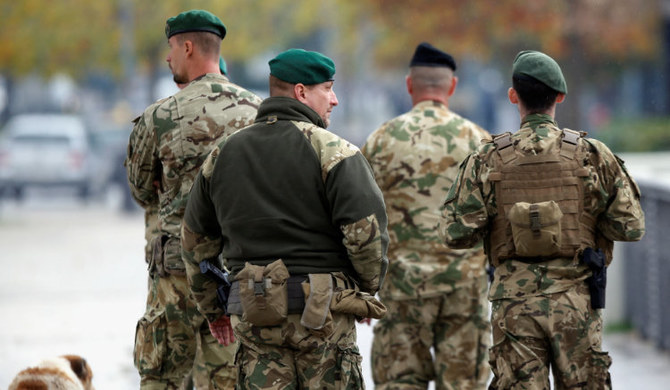
In recent years, Europe’s attention has been mainly focused on Russia’s invasion of Ukraine, the refugee crisis and the rise of populism across much of the EU, which has rocked the foundation of the post-Second World War European project to its core. While these issues are important, focus on them has often come at the expense of Europe’s own back yard in the Balkans. This is shortsighted and naive, and could prove to be dangerous.
As the frequent battleground for different empires over the past several centuries, the Balkans have long served as Europe’s tinderbox. The assassination of Archduke Ferdinand in Sarajevo in 1914 was the opening shot of the First World War. This led to tens of millions of deaths and sparked a chain of events that gave us another World War, a Cold War, a genocide, and countless smaller but deadly conflicts.
Although security in the region has improved dramatically since the 1990s, sectarian divisions remain and are exacerbated by sluggish economies, high unemployment rates and endemic political corruption.
Young professionals who can get out of the region do. Nearly 40 percent of Albanian, Kosovan or Bosnian citizens live as diaspora communities in Western Europe. The Balkans were also one of the main transit routes for refugees trying to enter the heart of Europe in recent years, and this placed additional burdens on fragile economies.
The social, economic and political situation makes the region vulnerable to malign Russian influence and the rise of extremism. If left unchecked, the region could once again become a problem for the international community, especially for Europe.
In recent years, the Balkans have served as fertile recruiting grounds for Daesh and other terrorist groups. This should come as no surprise. High unemployment and stagnant economies have added to social pressures for many minority groups in the Balkans.
This is especially true for young Muslim men who feel marginalized from mainstream society and see little hope for their future. In recent years, youth employment in Kosovo has been as high as 64 percent, for example.
Estimates place the number of fighters from the Balkans in Iraq and Syria at just under 1,000. The true number could very likely be much higher. Kosovo has contributed more fighters to Daesh than any other country in the region, but many have come from Albania, Macedonia and Bosnia too.
Now that Daesh has suffered major defeats on the battlefield, many of the remaining foreign fighters are returning home. If this threat is not handled properly, it could create a dangerous situation for the Balkans.
Fighters are routinely arrested upon their return. Earlier this month, Macedonian security authorities arrested seven men accused of returning from Syria. However, governments in the Balkans are having difficulty successfully convicting those who have traveled to Syria since evidence admissible in court is often scarce.
Now that Daesh has suffered major defeats on the battlefield, many of the remaining foreign fighters are returning home. If this threat is not handled properly, it could create a dangerous situation for the Balkans
Luke Coffey
Another challenge is the growing malign influence of Russia in the Balkans. Russia has played a historic role in the region as the self-proclaimed protector of the Slavic and Orthodox Christian communities there. Today, Moscow exploits social and political tensions in the Balkans in an effort to advance a pro-Russia agenda.
Moscow has one main goal in the region: Keep the Balkans out of the Euro-Atlantic community and in its own sphere of influence. It has shown that there is little it will not do to achieve this goal. Russia has even been accused of organizing a failed coup in Montenegro in 2016 as a last-ditch effort to prevent that country from joining NATO.
Serbia has long served as Russia’s foothold in the Balkans. Moscow supported Serbia’s opposition to Kosovo’s independence in 2008, and continues to use Kosovo’s independence to justify its own actions in Crimea, South Ossetia and Abkhazia.
Russia is also active in the ethnically Serb Republika Srpska, one of two sub-state entities inside Bosnia and Herzegovina that emerged from that country’s civil war in the 1990s. The leader of Republika Srpska, Milorad Dodik, has long been an advocate of independence for the entity, and has enjoyed a very close relationship with the Kremlin.
Dodik’s push for independence could further unsettle the fragile peace and stability in Bosnia after years of war in the 1990s. It is worth noting that he recently said Serbia’s involvement in the deaths of nearly 8,400 Bosnian Muslims in Srebrenica in 1994 was “untrue,” and many of the victims are “still alive.”
Thankfully, it is not all doom and gloom. On the energy front, many of the geographical and political obstacles for the Trans-Adriatic Pipeline have been overcome, and the project is on schedule. This pipeline will run from Greece to Italy via Albania and will connect with the Southern Gas Corridor, bringing gas from the Caspian region to the heart of Europe, and for the first time to many places in the Balkans.
Euro-Atlantic integration is making decent progress in the region, despite all the aforementioned challenges. Croatia and Slovenia are already in the EU and NATO. Montenegro and Albania are in NATO. If the Greek-Macedonian name dispute can be satisfactorily resolved, Macedonia will soon join NATO. Membership into such institutions helps provide security and stability, which in turn bring economic prosperity.
During the 1990s, the international community spent a lot of blood and treasure stabilizing the Balkans. The best way to ensure the region’s stability is to stay engaged and work together to prevent dangerous influences taking hold.
The late British Prime Minister Winston Churchill once reportedly said the Balkans produce more history than they can consume. While historians debate whether he actually said this, there is no denying that the statement is true. Now is not the time to ignore the region.
Luke Coffey is director of the Douglas and Sarah Allison Center for Foreign Policy at the Heritage Foundation. Twitter: @LukeDCoffey
Disclaimer: Views expressed by writers in this section are their own and do not necessarily reflect Arab News" point-of-view












